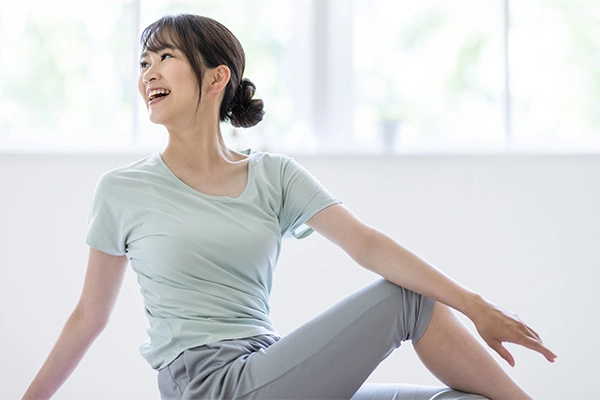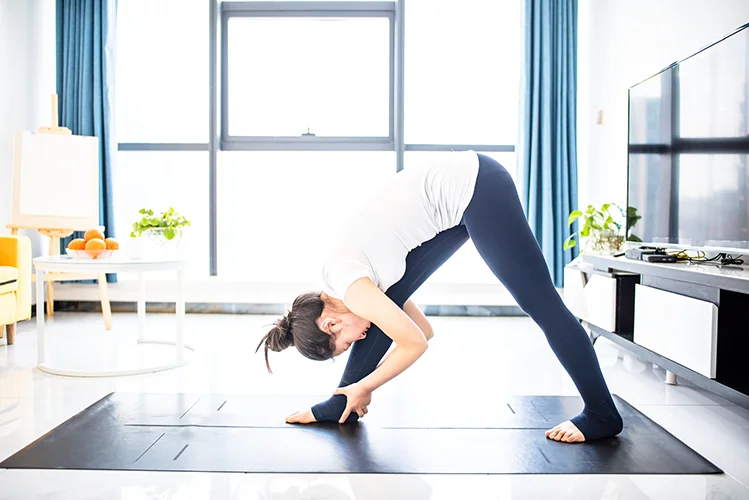Topics
Recommended Amount of Exercise Time Per Day
World Health Organisation (WHO) recommends 150 minutes a week of moderate-intensity exercise, including brisk walking. You could start where you are and slowly increase your activity week by week.
150 minutes of moderate-intensity weekly exercise can be divided into various segments. Some people exercise 30 minutes five days a week, while others exercise 10 minutes a few times a day.
Advantages of Walking for Health
Walking is an easy and free activity that helps you to lose weight, be more active, and generally become healthier. Here are some health advantages of walking.
- Walking is an effective way to burn calories and maintain a healthy weight. It is an exercise that is often overlooked by many and is an excellent alternative to hitting the gym.
- Being physically active for a few minutes and a few times a day can increase your energy and prevent energy levels from dropping. Taking walks in the morning sunshine is good for you.
- Exercise enables you to fall asleep faster and improves sleep quality. Moderate aerobic exercises will increase the amount of slow-wave sleep you get. Slow-wave sleep means a deep sleep, where the brain and body have an opportunity to rejuvenate.
- Physical activity, including walking, stimulates the release of endorphins, which are neurotransmitters known as "feel-good" hormones. Endorphins can help reduce stress and elevate mood.
- Regular walking strengthens the heart and reduces the risk of heart diseases, such as coronary artery disease (CAD), which affects blood flow to the heart.
- Regular physical activity helps control blood glucose levels, which plays a big part in managing diabetes for diabetic patients.
- Walking as a physical activity can help reduce the risk of chronic diseases. Chronic diseases are conditions that last a year or more and need ongoing medical attention such as heart disease, cancer, and diabetes. Physical inactivity is one of the causes of chronic diseases.
- Walking engages various muscle groups, contributing to overall muscle strength and endurance. It is gentle on the joints and suitable for people with arthritis or joint issues.
- Regular physical activity including walking helps clear your head and improves brain function. Several research studies have shown that physically active people are less likely to experience a decline in their mental function, and their risk of developing Alzheimer's disease is lower than that of non-physically active individuals.
- Staying physically active helps boost your immune response over time. A good immune system protects against various diseases and disorders.
Ways to Start Walking Regularly
- Wear appropriate footwear such as comfortable shoes or trainers that provide proper support and that do not cause blisters. Proper footwear can prevent discomfort and reduce the risk of injury. If you walk to work, wear comfortable shoes and change upon arrival.
- Look for opportunities to incorporate walking into your daily activities. For example, choose stairs over elevators, walk to nearby places instead of driving, or take short walking breaks during work.
- Explore different walking routes to keep things interesting. Explore local parks, nature trails, or different neighbourhoods.
- Warm up before you walk to reduce muscle soreness and risk of injury. Afterwards, cool down with gentle stretches to improve flexibility and reduce muscle soreness.
- Set realistic goals when you start out based on your physical ability. For example, aim for a 10- to 15-minute walk initially and gradually increase the duration as your fitness level improves.
- Make your walks interesting and enjoyable by visiting various locations such as parks, heritage trails, nature reserves, and more.
- Use fitness apps or wearable devices to track your steps and monitor your progress. Many apps offer guided walking workouts or challenges to keep you motivated.
- Try walking with a friend, family member, or pet to make your experience more interesting and engaging, motivating you further.
Make an Appointment at Gleneagles Hospitals
Do speak to healthcare professionals to discover the benefits of walking and learn how to get started on your journey. Book an appointment with us to experience our premium health screening packages. We assure you the best possible care tailored to your specific needs.









